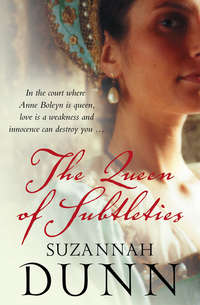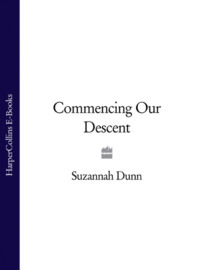
Полная версия
Tenterhooks
We decided that we could not miss any of The Crucible rehearsals, two of which were scheduled for this week. This was too much for Mr Bennett, who sent us to Mr Dene, the Headmaster. Mr Dene said that all we had to do in our roles was scream. We informed him that there was much more to our roles than simple screams – that we had to scream at the correct moments and with the correct intensity. In our defence we called one of the English teachers, who was directing the play, and she did her best, but Mr Dene – being Mr Dene – refused to listen to her.
So then Rachel marched into his office and did not stop until she was in the middle, where she hooked her hair behind her ears to show that she meant business and said to him, ‘Look,’ I’ll be straight with you, ‘we just don’t want to go, okay?’
This okay was her mistake, because from behind his desk he bellowed, ‘No, it is not okay,’ and went on, ‘if you refuse to go on this field trip, then you will be unprepared for your exams and I will refuse to allow you to take them.’
I stepped forward from the doorway to join Rachel, and explained calmly, ‘Mr Dene, marine biology is one of our options; in the exam, we have to write essays on four of six options. So, we can easily avoid marine biology.’ I had done my homework.
But my mistake was to have mentioned options, and ease. Why did I do this? I know very well that Mr Dene’s whole life is about the destruction of our options and ease. I think that I may even have smiled, slightly, which, if I did, was even more stupid of me.
Mr Dene addressed Rachel, which people usually do: parents and teachers, they all direct their arguments to Rachel, often looking at the four earrings that she has in both ears, as if this justifies their shouting, as if the earrings are blocking her ears. ‘You will go,’ he yelled, leaning over his desk, ‘because I say so.’
Rachel muttered, ‘Wonderful philosophy of education,’ but stepped backwards to the door. I could not believe that she was giving in so readily. But I followed her, I had to follow her; if I had not followed, I would have been left behind. At the door, though, she turned our defeat into a threat: ‘We’ll go,’ she told him, and cocked a cold smile onto her face, ‘but, believe me, we don’t have to like it.’
And so here we are, not liking it: I did not choose biology so that I could study whelks; I chose biology because I was interested in people. I wanted to follow the intense and precise activities beneath our skin. I love the logic of biology: in bodies, everything has a time and place. This is why biology is so easy to learn, for all the intricacies. Because I only have to think, as long as I think very carefully: what is needed, here, and what happens next, what has to happen next? Unlike those other favourite subjects of mine, literature and history, which are made of people’s schemes, mistakes, runnings amok. But the logic of bodies is different from the meaningless logic of maths or of the other school sciences, chemistry and physics. Biology makes sense: I can hold the bits in my hands, if I want, if I need, and they are the means to an end, an end which is real, which is life. In the chemistry labs, the plastic models of molecules look like starships given away in packets of breakfast cereal. And physics: I remember one lesson, on inertia, and I suppose that inertia is real in a sense, but not really real; physics was a lot of ticker tape.
But my biology has to be human; or, at a push, mammalian, and then only because of the similarity of their little bodies to ours, their skulls and spines. I have no interest in animals which drag shells or lay eggs, and I have even less interest in plants, those stacks of starchy cells which soak up whatever is dropped on them. There are whole textbooks that I never open: The Plant World, The World of Invertebrates. Unfortunately, marine biology is made from the very worst of both worlds, animal and plant: animals that are no more than plants, and plants that are more like animals. All of them are bits of slime that stick to and hide in rocks.
Three days ago, I despaired and took matters into my own hands: I went to the doctor and lied that I was ill. She asked questions about my appetite, kneaded my neck with her fingertips, pressed her cold stethoscope to my bared chest, found nothing and diagnosed a virus.
I explained, ‘But I’m going to a peninsula for a biology field trip in three days’ time.’
She reassured me, ‘Oh, I’m sure you’ll be fine.’
I hurried, ‘But what if I’m not?’
She frowned, smiled, told me to come back if I did not improve. So, I did, yesterday, to tell her that I was worse. She pulled down my lower eyelids, looked into my mouth, frowned into my face and asked me, ‘Do you have anything on your mind, at the moment?’
‘Yes, the biology field trip.’
She smiled. ‘Fresh air and exercise: you’ll be fine.’
‘But what if I’m not?’ I urged.
She soothed, ‘Don’t worry.’
We seemed to be at cross purposes.
Then she laughed, genuinely happily. ‘You’ll survive.’
Survival: I love the perfection of human biology but also, and perhaps more so, the flaws; I love the possibility of flaws, which cannot exist in the other sciences where everything either is or is not. I love the ways that bodies can overcome their problems. I love the mysteries, too, the unmapped depths of bodies. There is a brain injury that causes people to try to have sex with anyone or anything. Which means that there is a biological basis for inhibition, that even self-control is biological.
We have survived the first full day of field work. The schedule pinned to our dormitory door tells us that, now, having had our Dinner, we are Free until Lights Out at eleven o’clock. This seems expertly cruel: we are free, but there is nothing to do and nowhere to go. Before we came here, Mr Stanford told us that he would drive us to local pubs, and we decided that an evening with him was better than nothing. But arriving here yesterday, parking in the courtyard, in the darkness, he hit something and tore off the back bumper. So now the minibus is awaiting the attentions of the local garage man, who is due sometime much later in the week. When we whined to Mr Stanford, this evening, over dinner, that we had nothing to do, he laughed and suggested that we take advantage of the library. This mention of the library was to flatter Jim, the Course Leader, who was sitting with him – this morning, during our Briefing (09.05, Briefing, Prefab no. 2), Jim had fantasized long and loud over the library. He had told us that the library was excellent, rare, renowned, so that people came from all over the country.
Rachel whispered in my ear, ‘Yeah, my mum is always nipping down here.’
Jim must have heard, because he looked at her earrings and stressed, ‘Marine biologists.’
He is a marine biologist, which, for some reason, seems to impress Mr Stanford. Not us, though: one day here and we have discovered that marine biologists are the lowest form of life. At lunch time, Mr Stanford owned up that he would have liked to have become a marine biologist. We think that he would like to be Jim, climbing over rocks with the wind in his hair. We think that Mr Stanford has been tampering with his hair today so that he looks like Jim. He is happy here, and has made no effort to hide this from us. He has a drinking buddy in Jim, which we know because Avril overheard Jim’s promise of a hot toddy or two tonight in my room. And, more importantly for him, he has found someone to fancy, someone called Janet who is here to research for a Ph.D. in algae. And she looks as if she is here to research for a Ph.D. in algae. Avril saw Mr Stanford turn from Jim to Janet, heard him ask her, ‘Janet? A hot toddy or two, later?’ He has plans, now; he cares even less about us, he makes no pretence, now.
When he laughed and told us to spend the evening in the library, I was only amazed that anyone could laugh anywhere in the vicinity of that meal. We had been called to dinner by an electric bell, like a fire alarm, which jangled the courtyard where we were trying to remove our waterproofs. We had come back late from what Jim called the field; he had kept us too long in the field and then taken us, in our waterproofs, into Prefab no. 2 for a late Debriefing. When the alarm rang, Mr Stanford announced, cheerfully, ‘Dinner.’
Avril complained, ‘That noise! Can’t we have a gong or something?’
Mr Stanford said, ‘No.’
In the dining-room, we had to queue with various staff and researchers for food, which was served in individual portions on metal trays. According to one of the cooks, the stew was lamb and the vegetable was swede. I asked her, ‘Is there any vegetarian?’
She said, ‘None in Pembrokeshire that I know of.’
I walked carefully to Mr Stanford with my runny portion and said, ‘But I’m vegetarian.’
He said, ‘No you’re not.’
I told him, ‘Yes I am.’
He laughed. ‘No you’re not: humans are omnivorous.’
I ignored this. ‘I’m vegetarian.’
Suddenly humourless again, he said, ‘But if you were vegetarian, you would have thought about this, you would have told me before we came away.’
I had to think quickly. ‘I’ve converted. There has to be a moment of conversion, and mine is now, with this lamb.’
‘Scrag end,’ corrected Trina, coming over, grimly cheerful, with her own tray.
Mr Stanford said, ‘Tough.’
Trina agreed, ‘You can say that again,’ and demonstrated, poking a piece with her knife.
I told him, ‘I’m not touching this, or anything like this; and if I starve, you’re responsible.’
He fizzled into exasperation, hissed to the ceiling, ‘Why are girls so fussy?’ Then he shouted through the hatch, ‘Is there any vegetarian?’
And a voice came back, ‘There’s a banana.’
So I had swede and banana, which I mashed together.
And now we are in our room for the evening; we have all crowded into the room which belongs to me, Rachel, and Susie. Even Lawrence, who was found in the corridor by Trina when she was coming from the room which she shares with Avril. According to her, he was pretending to read the bulletin board which is pinned with local maps and posters of seaweed. She told us this after pulling him into our room and announcing, ‘Look who I’ve found: Loz.’ She always calls him Loz.
We had temporarily overlooked Lawrence, in our self-pity. We apologized profusely and offered him a toddy; we have our own, a toddy but not hot, a quarter bottle of Scotch which Rachel was clever enough to buy from the supermarket on her way to school yesterday. We passed the bottle to Lawrence and he swigged, but appeared not to swallow and has declined all further offers. He is sitting on the end of the bed next to the door, which is mine. His knees are prominent.
Susie left the room ten minutes ago to phone Nathan. We can hear her on the pay phone at the end of our corridor, but her murmurs make no sense to us, they are little question marks to hook and hold his attention. On her pillow is an unfinished letter to him. Rachel, lounging on the floor, has been lying in wait for my gaze which she snares now in a conspiratorial smile.
‘What?’ I ask, wary, my hand pausing in the box of breakfast crunch, which is our only treat because we have already eaten our week’s supply of chocolate.
Holding my gaze, she reclines, suddenly switches her attention to the top sheet of Susie’s letter.
‘Don’t,’ I am serious but I laugh, I am so serious that I have to laugh.
But without taking her eyes from the letter, she raises her eyebrows. ‘Is it folded carefully away, or is it here on her pillow for everyone to see?’ As her eyes move over the words, her teeth come slowly onto her lower lip to hold down a smile.
So that now she has me: ‘What?’ I have to know, to coax her, ‘What does she say?’
The eyes widen to confront me. ‘I’m not breaking Susie’s confidence,’ she complains, mock-indignant.
I tut her away, but then the letter hovers in front of me in Rachel’s hand.
I shake my head.
So she places the letter back onto the pillow and tells me the truth. ‘She says nothing; We arrived here … that kind of stuff.’ And hums a laugh, ‘Or so far, because I stopped before the juicy bits.’
Avril peeps over her crossword puzzle book, ‘Are there juicy bits?’
Rachel turns on her. ‘Don’t you tell her that I read this.’
The door opens, slightly increasing the volume but not the sense of Susie’s words, and Trina hurries into the room. ‘There’s a notice in there,’ she wails, ‘Do not flush away sanitary dressings.’ Looking around us, she emphasizes, ‘Sanitary dressings.’
I wonder, ‘Any relation to salad dressings?’
Her gaze catches momentarily on Lawrence, ‘Oh, sorry, Loz.’
Rachel complains, ‘Shut the door, it’s freezing.’
It is not freezing in here, but our bodies bear the memory of a long cold day on the shore and now shiver in response to the mere opening of doors. If anything, it is too warm in here. The block of dormitories is new, and seems to be built from static.
Shutting the door, Trina complains, ‘It’s so cold that I can’t even face going for a fag.’ We have to go outside to smoke; the building is fitted with smoke detectors. She stomps across the room and thumps the window. ‘Has anyone managed to open this yet?’
Avril says, ‘I don’t think it’s supposed to open, it’s like a porthole. Because of all the water around here.’
We all turn to her. And I check, ‘You think the water comes up to here?’
‘Well, possibly.’
For a moment we listen, and hear something like a tube train far below us.
‘Anyway,’ I tell Trina, ‘those cigarettes are off.’
No one disputes this. The cigarettes are stale. I have never had a stale cigarette before. I have never had very many cigarettes at all; I smoke only when I am under stress and there are no other options, no sugar, no alcohol, no music, no Mike or Jamie, and no laughs from Rachel. The stale cigarettes came from Rachel, who disappeared from the courtyard during the confusion of waterproofs removal. She returned twenty minutes late for dinner. Sliding next to me on the bench, with a wild wrinkle of her nose in the direction of my mashed meal, she nudged my attention to her hidden hands: beneath the table, three packets of cigarettes, sixty; I swallowed a wave of nausea. And interrogated her, ‘Where have you been?’
To keep Mr Stanford’s attention at bay, she faked interest in my plate while she whispered, ‘The local sort of corner shop.’
Local? So there was hope, there was a locality.
‘Where?’
She inclined her head, slightly, ‘About a mile in that direction,’ then laughed briefly, ‘the direction of inland.’
‘So,’ I urged, ‘there’s a village or something?’
‘No, nothing.’ She was wriggling to slot the packets into her pockets. I kept watch on Mr Stanford for her. Which was a mistake: he was carefully in conversation with Janet the Algae, their heads low and close, but when this composure exploded with a laugh, his gaze came quickly to mine. I smiled beautifully, and he looked away.
I returned my attention to Rachel. ‘But you said corner shop.’
‘I said sort of corner shop. It would be a corner shop if there was a corner.’ She winced her apologies, ‘It’s just a shop, Jenny.’
I thrashed my meal with my fork. ‘And you’ve missed dinner.’
She frowned down into the sticky mess, then looked up into my despondent face and widened her eyes to make her point.
Reluctantly, I smiled. ‘Yes, but you’ll starve.’
She shrugged this off, ‘We have that box of crunchy mix.’
I did not say, Why no chocolate? Why sixty cigarettes and no Aero? Because she was right, she did the right thing: the final disastrous touch to the week would be a few extra inches on our hips.
Now Trina is crashing back across our brittle, smoke-free room. ‘Well, if the ciggies are off …’ Her boots crunch our spillages of cereal. She leaves the door open as she hurries into her own room. Returning, she asks, ‘Want one?’ but immediately turns away to close our door very firmly. There is a plain brown envelope in one hand, a few pinhead pills slipping down over the flap into the palm of her other hand. They line up like beads of mercury in the main crease, the main channel of her palm.
I want to know, ‘What are they?’
She extracts one in a pincer of index finger and thumb, and pushes it between her lips. ‘Anti-depressants,’ the reply comes slightly sticky, ‘my mum’s.’
Rachel sits taller. ‘What do they do?’
The pills slam back down onto one another in the envelope, and Tina heads for Susie’s vacant bed. ‘Cure depression, I suppose.’ Reclining, she holds the envelope high, keeping open the offer.
Avril doubts, ‘One of them will cure depression?’
Lawrence looks exactly how he looks in class: interested, but in facts rather than fun.
‘Well, no,’ Trina wails her irritation with Avril. ‘But they can’t make me feel worse than how I feel now.’
Rachel stretches to the volume control on the tape recorder because the tape has reached ‘Changes’, her favourite track. ‘So why do you have them?’ she shouts over David Bowie, her voice further strained by her stretch.
Trina’s eyes slot towards her. ‘I nicked them, of course.’
Rachel dismisses this with a shake of her head. ‘No, I mean, won’t she notice?’
Trina gives up, chucks the envelope on to the floor. ‘My mum notices nothing,’ she tells the ceiling.
Rachel’s eyes slide to me on a smile. ‘Wouldn’t I love to have that kind of mum.’
I tell her, ‘Do you know that Jamie has tried some heroin?’
Apparently too weary to speak, she widens her eyes, Really?
‘Sniffed,’ I inform her, ‘not injected.’ And therefore not addictive, or so he told me. ‘Says it was like lying in a warm bath.’
‘A warm bath,’ she repeats, and seems to breathe in as she speaks, her eyes misting.
Avril says, ‘The showers on Mr Stanford’s corridor are better than ours: I went to explore. No mould on his wall.’
Rachel coughs a laugh. ‘He’d love some mould, Av, it’s biology.’
Trina tells us, ‘H is for losers.’
Avril’s incomprehension tightens into a frown, which she tries to feel her way through, begins by mouthing, ‘H …’
Rachel flips back the top of the cigarette packet, and muses, ‘You hang around with the wrong kind of people, Jennifer Jordan.’
‘So do you.’
‘I’m older.’ This is our joke, because she is twenty-two days older than me. ‘And one day you’re going to end up in a lot of trouble,’ which is another joke of ours because it is our teachers’ and parents’ favourite declaration. A declaration that is intended for Rachel, primarily, but which seems to reach me by osmosis.
I indicate the packet in her hands: ‘Not in here,’ I remind her, ‘the smoke alarm.’
‘I’m only sniffing.’ She draws the cigarette along the length of her smile, and lingers on the tip, where she inhales dramatically.
Then we both join in with Bowie for, ‘Ch-ch-ch-ch-changes …’
When we have finished this, our favourite line, there is silence; this is a hard line to follow, and anyway there is nothing new to say.
After a while, I ask around the room, ‘Do any of us need to do marine biology?’
Trina mutters, ‘Like fuck.’
Avril agrees, ‘Never ever.’
Rachel adds, ‘And I think that we can speak for Susie, too.’
Susie is taking biology because she wants to be a nurse. Trina wants to be a physio: manhandling rugby players, she tells us and we do not know if she is serious. No one knows what Avril wants to do. Rachel’s reasons for biology are the same as mine. We became friends through biology, on the back bench in O level, from where we would counter Mr Bennett’s descriptions of flawless function with questions about diseases and their cures.
Suddenly phlegm whinnies in Lawrence’s throat. ‘Well …’ his voice, in our room, sounds odd; seems to sound odd to him, too, because he blinks convulsively, his eyes like moths, and his mouth thins but falls short of a smile. He tries again, rushes, ‘I want to be a vet, so I have to study animals, but not …’ and he fades.
‘Not whelks,’ Rachel says for him, turning to him.
‘No.’ His eyes fix on her, seem to implore.
‘Of course not whelks,’ she reassures him, before returning to the rest of us to announce, ‘so, the Nobel Prize for marine biology is awarded to Trina.’
Trina struggles up onto her elbows and whines a quizzical, ‘My arse.’
Rachel explains, ‘Nautical Night’: Trina’s favourite club, once a month on a boat on the Thames.
Day Three, and Jim has finished our Briefing, has told us what we have to do today: we have to mark square metres on a rock face and note the distribution of barnacles within this grid. He did not apologize; on the contrary, he seemed to think that his little exercise would appeal to us, that this would seem like a good way to spend a day. Yesterday, when we were supposed to be probing rock pools, I wandered and came across Lawrence. He was crouched behind a boulder, lighting a new cigarette from the previous one. When he was dabbing the old stub onto a barnacle, he saw me. His mouth was so busy with the second cigarette that he could only manage to hoist his eyebrows in greeting. I was so shocked that I could think of nothing to say but a sympathetic, ‘They’re stale.’
He exhaled, sighed smokily, ‘They’re better than nothing.’
I bumped and tottered back over the rocks to Rachel and asked her, ‘Did you give Lawrence some of those horrid cigarettes?’
She looked up from her rock pool, and raked through her wind-whipped and salt-stiffened hair. ‘Yes, a few, although he tried to say no.’ Her frown meshed with the streaks of her hair. ‘Why?’ Breathless with the sea breeze, I laughed helplessly as I informed her, ‘He’s behaving appallingly, up there: smoking, and burning barnacles.’
She stood up, grinned slowly, and reached into her mouth for a limpet of chewing gum which she dropped into the rock pool before she murmured appreciatively, ‘Loz unleashed.’
Now Jim is slamming through the swing door into the courtyard, keen to lead us down to the shore for another day of excitement. But every day we are allowed a few minutes before we leave, in which to zip and Velcro ourselves into our layers and to fetch anything that we have forgotten. Then Jim will bark, ‘Notebooks?’ Because according to him, the notebook is the indispensable tool of the marine biologist: a pocket stiff notebook, in his words. A pocket stiff, in ours. As we leave the bench to follow him, my pocket stiff falls open onto the floor. Bending down, I scan the displayed page, the words which, on our first day, we had been told to copy from Jim’s blackboard: Supplementary fauna key: Limpets; if no groove, look into shell mouth; if mother-of-pearl, then top-shell, if no mother-of-pearl, then winkle. Beneath this I had scrawled, ‘Ziggy Stardust’, Trina’s favourite Bowie track, which she sang for hours in the minibus. I pick up the book by the cover and the pages spin to today’s copied words, the chart on which we are supposed to record the distribution of barnacles: on bare rock, on weeded rock, in rock pools, in crevices, on pebbles, under boulders, on plants, on animals. Across the top of this chart I have written ‘Suffragette City’, which is my own favourite.
I am going to check on Rachel. When I came into the Briefing and told Mr Stanford that she was too ill to leave her bed, he turned from me without a word and hurried across the courtyard to our dormitory block. That was five minutes ago, and he has not yet returned. During the night, I woke twice, briefly, barely, to see Rachel away from her bed. The first time, she was standing by the window, stooped over something in her hands. She was pearly in the overspill of floodlight from the courtyard. Her T-shirt, the hem flopped on the tops of her thighs, turned her into a child’s drawing of a girl in a dress: the triangular dress and long lines for legs. But no colour: all of her was pearly, even her eyes. And the earrings: the show of earrings reduced to nothing, to polite pearls. She was drooping, and then came the sound that told me what she was doing: the smash of a pill through a membrane of silver foil.







